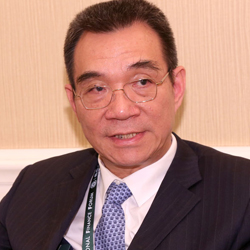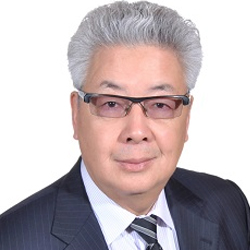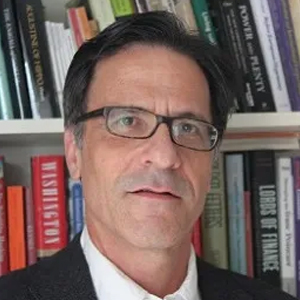Justin Yifu Lin is a leading Chinese economist, and former Chief Economist and Senior Vice President of Development Economics at the World Bank (2008-12). He is Professor and Honorary Dean of the National School of Development, Peking University, and the founding director of the China Center for Economic Research.
He became an elected member of the Standing Committee of the 12th National Committee of the Chinese People's Political Consultative Conference (CPPCC) in 2013. Lin serves as a consultant to major international organisations, and is a renowned expert on agricultural economics, development economics, and economic reforms in China.
He became Chief Economist at the World Bank in 2008 as the international banking crisis gathered momentum, and during his tenure he played a key role in shaping the economic research agenda of the institution. As the World Bank's first chief economist from the developing world, Lin brought the issues of climate change and the impact of the evolving financial crisis on developing countries to the forefront.
Prior to joining the World Bank, he was Professor and Founding Director of the China Centre for Economic Research (CCER) at Peking University for 15 years. In 1994, Lin and 5 other PKU professors founded the China Center for Economic Research (CCER), to attract foreign-educated Chinese economists. The center became increasingly influential in the shaping of Chinese economic policy. After his term at the World Bank, he resumed teaching at the university in 2012.
Previously, Lin was Vice Chairman of the All-China Federation of Industry & Commerce (2005-12); Vice Chairman of the Committee for Economic Affairs of the CPPCC (2005-08); and Member of the National Committee of the Chinese People’s Political Consultative Conference (1988-2008). He was also a former professor at the Hong Kong University of Science and Technology (1997-2005).
He has written many books on China, including ‘Demystifying the Chinese Economy’ (2012), the highly regarded ‘The Quest for Prosperity: How Developing Economies Can Take Off’ (2012), and ‘New Structural Economics’ also published in 2012 won the Pushan Prize. His latest book ‘Against the Consensus: Reflections on the Great Recession’ (2013) draws on his World Bank experience and offers views on the cause of the crisis, why it is so serious and widespread and its likely evolution. Arguing that conventional theories provide inadequate solutions, he proposes new initiatives for achieving global stability and avoiding the recurrence of similar crises in the future.










